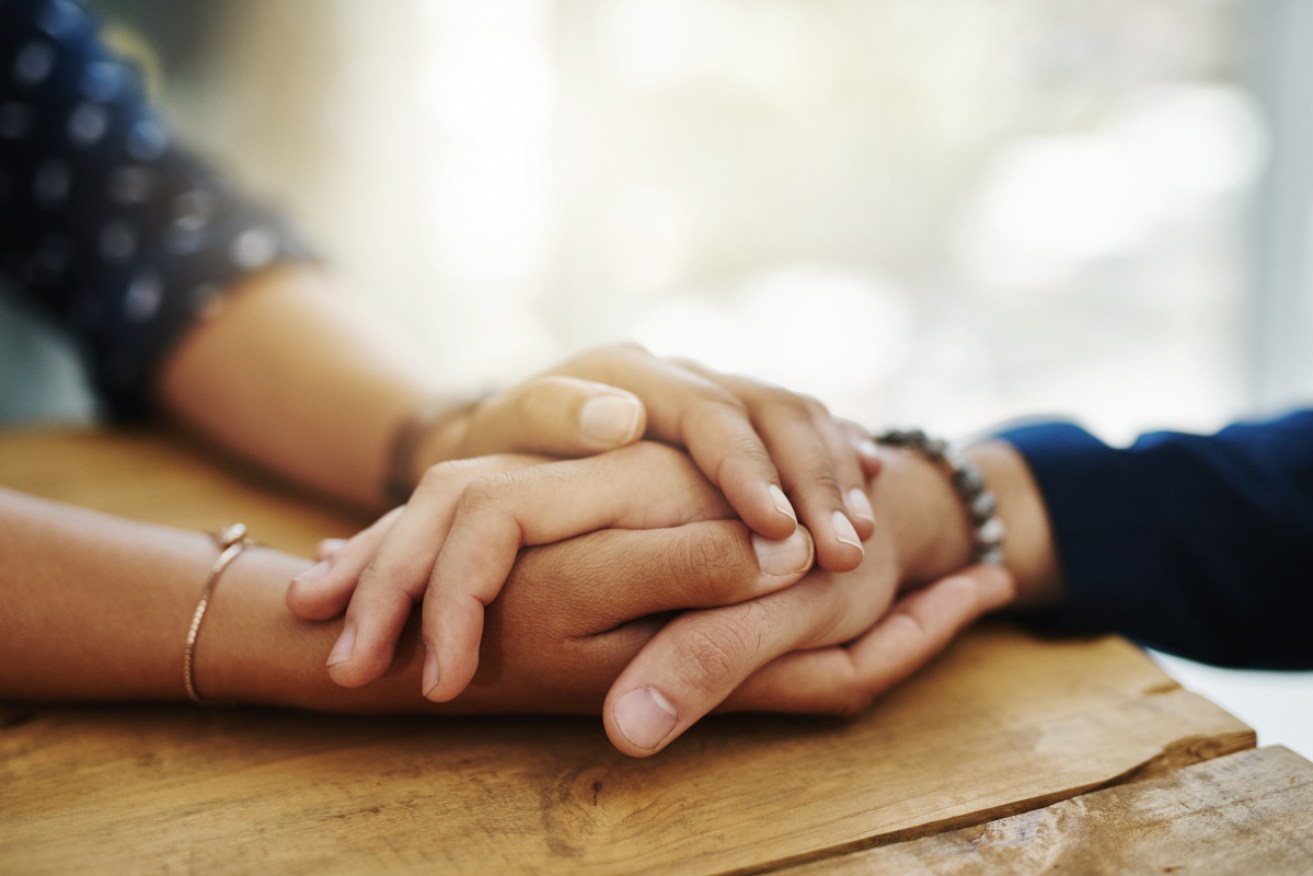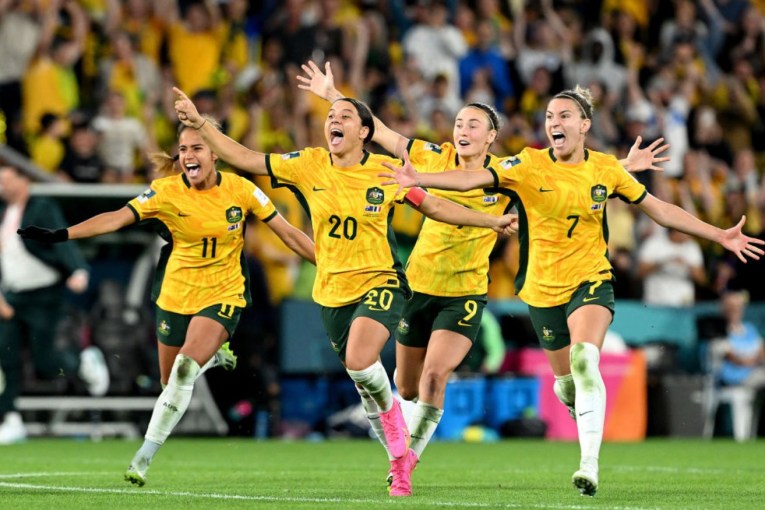What not to say to someone who’s been diagnosed with cancer


There are many ways to support someone with cancer, here's what you should and shouldn't do. Photo: Getty
Emily Chinn was studying a Bachelor of Primary Education at the University of Canberra. She had just been hired as a sales assistant at the Body Shop. Emily was just 26 when her doctor confronted her with the “C” word.
To a certain extent, any cancer diagnosis can interrupt your plans but while treatment certainly put Emily out of commission for the better part of a year and challenged her to make decisions that no 20-something should have to make, she didn’t let it derail her plans for the future.
“My breast cancer diagnosis impacted, and continues to impact, every aspect of my life,” Emily told The New Daily.
Immediately after her diagnosis, doctors made it clear to Emily that the treatment would have a catastrophic impact on her fertility. They recommended she undergo IVF and freeze her eggs.
“[That was] not something I was planning on doing at 26,” she reflected. “The chemo made all of my hair fall out within two weeks. It took most of my energy along with it.”
Emily said her workplace was and remains very supportive throughout her cancer experience, but no matter how hard she tried, there were days when she simply could not get on with the regular activities of the day-to-day.
“I was able to take days off at short notice when I felt unwell and transitioned to short shifts as my energy waned,” she said.
“Some days I had to be content with a shower as my greatest achievement of the day. Other days I was too tired for even that. On the days that I did go to work I was often met with strange looks and hurtful questions from well-meaning, and some not quite so well-meaning, customers.
“A bald head is a difficult thing to disguise. Everywhere I went I felt people’s eyes on me. Even if retrospectively they may not have been, nothing kicks your self-esteem to the curb quite like chemotherapy.”

“Nothing kicks your self-esteem to the curb quite like chemotherapy.”
A big challenge for a lot of individuals touched by cancer can be engaging the understanding of those outside our immediate circle. Families can often coalesce around a serious illness leaving even the most well-meaning friend or acquaintance unsure of how to help or what to say.
It can be hard for outsiders to imagine the relentless and consuming nature of a long-term health problem.
For Emily, chemo fundamentally altered the nature of her relationships.
“Going out for drinks or even a dinner after 6[pm] became out of the question,” she explained. “To their credit, my friends were usually up for coming to visit me at home or an early coffee date on a good day.”
After seven months of chemotherapy Emily was finally regaining her old energy levels when it came time for the next phase of her treatment: a mastectomy followed by daily radiation therapy.
“This process took me through Christmas, New Year’s and my 27th birthday – not one I will be forgetting any time soon,” she said.
“Radiation was painful, uncomfortable and tiring. It zapped me of the energy I had regained.”
Getting through cancer treatment is tough, it is a long slog, it often makes you feel much worse before you get any better. It is a process that is commonly exhausting, emotionally draining, unremitting and at times downright frightening. Having people who can cluster around you and hold you up when you are finding it hard to support yourself is a blessing.

Having a support system is a blessing.
“I am so grateful for the support of my family, friends and my partner,” Emily said. “My heart really goes out to people battling cancer alone.
“I had a never ending supply of hands to hold, shoulders to cry on or ears to listen. I never went to chemotherapy alone. I never saw a specialist without my partner, my family or a friend sitting right beside me. My family made sure I had everything I needed and I always had a comfortable bed to rest in and a home cooked meal to lift my spirits.”
Emily said her breast care nurse and doctors made her feel respected and listened to at all times, another huge support.
“I can’t speak highly enough of my medical team, they do a fantastic job,” she said.
Now that chemo and radiation are over, Emily said she is starting to get parts of her pre-diagnosis life back on track. She’s returned to university part-time and is spending longer hours at work.
That being said, grappling with her self-image and the emotional rollercoaster of her life “post-diagnosis” is a daily challenge.
“Some days I would wake up feeling positive and excited about life and others I was horribly depressed and anxious.
“I feel that I’m still now grappling with my identity. I think that’s perhaps something that comes from being diagnosed at such a young age. I feel as though I hadn’t had the chance to really figure out who I was before cancer swooped in to try and define that for me.
“Some of us underestimate the trauma that is cancer treatment. Even once it’s ‘over’ it’s never really over. The fear of re-occurrence is ever present and the scars are there everyday in the mirror.”
Even today Emily has regular specialist appointments on her calendar and there’s no real sense of being “back to normal”.

Regular checks and appointments will always be a part of Emily’s life.
“The way I see it now is I’m no longer a full-time cancer patient – I’ve cut back to part-time.”
Emily is scheduled for reconstructive surgery in June and a second mastectomy at the end of the year.
“Hopefully once that’s behind me I can steal more of my life back from cancer.”
A message from one survivor to another:
“To the supporters, sometimes you can’t fix it. Sometimes you can’t ask someone facing the horror of cancer to be positive. Sometimes it’s better to sit with them and say, ‘This is really bloody awful and I’m so sorry this is happening to you’. And also, from a survivor to all of her supporters, thank you. I love you. I couldn’t do any of this without you.
“To the survivors, be as kind to yourself as you possibly can. It’s a time to be selfish, don’t feel guilty when people want to help or when you need extra support. Be honest with your carers, your partners, your family, your friends and your doctors about what you’re feeling. Both mentally and physically. Get a second opinion for your treatment options. Find out as much information as you can about your cancer. I felt a better sense of agency when I was armed with information. Don’t try and go to appointments alone, you won’t be able to feel and listen at the same time and there’s so much to take in. Ask your GP about a psychologist, an exercise physiologist and a dietician. Get in contact with BCNA if they don’t contact you first. Find out what services are available to you in your area and make good use of them. And also, from one survivor to another, I think you’re spectacularly brave and you’re doing a wonderful job of just getting through. You can do it.”
The New Daily is a media partner of the Women in Super Mother’s Day Classic, which takes place in 100 locations around Australia on Sunday, May 10, raising money for the National Breast Cancer Foundation to help fund breast cancer research.








